Resources for Humanitarian Settings
Ipas works with international humanitarian organizations to ensure people affected by crisis have reproductive health options that include abortion and contraception. Our resources aim to improve abortion access in humanitarian settings by providing accurate information to clinicians and those seeking care—and by building support among humanitarian professionals for reproductive health services.
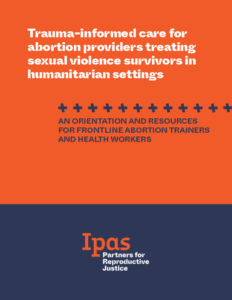
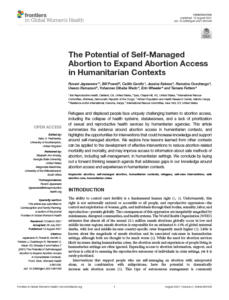
Refugees and displaced people face uniquely challenging barriers to abortion access, including the collapse of health systems, statelessness, and a lack of prioritization of sexual and reproductive health services by humanitarian agencies. In this commentary published in Frontiers in Global Women’s Health, the authors summarize the evidence around abortion access in humanitarian contexts, and highlight the opportunities for interventions that could increase knowledge and support around self-managed abortion.
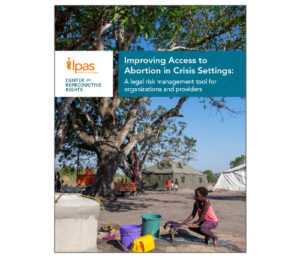
This tool is designed to help program planners and organizations understand abortion law and manage legal risk when providing or supporting access to abortion for people who are displaced by crisis. It provides general guidance and can be used online or in-person and with program teams, field teams, program managers and other decision-makers. It can also be incorporated in risk- and security-assessment processes.
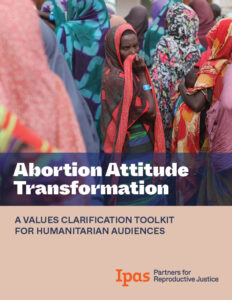
Abortion by trained providers is a safe and common procedure, legal under at least one condition in nearly every country in the world. Yet women and girls living in humanitarian settings often cannot get this essential reproductive health service—even when it’s available to other women in a country hosting refugees.
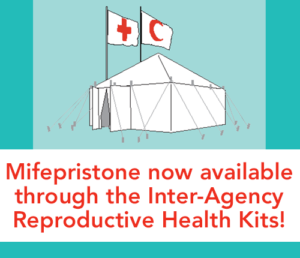
This card for humanitarian professionals provides instructions for obtaining Inter-Agency RH Kits, information on why mifepristone is now available in the kits, and a summary of WHO dosing regiments for abortion with mifepristone and misoprostol.
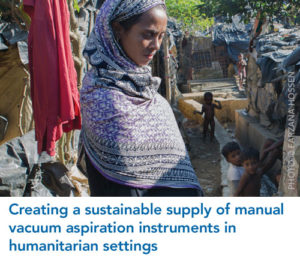
This card for humanitarian professionals provides an overview of manual vacuum aspiration (MVA) for safe abortion with a focus on humanitarian settings—plus instructions for how to obtain MVA equipment through Inter-Agency RH Kits and from DKT WomanCare.
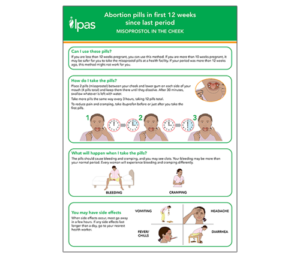
This two-page material provides simple instructions for safely using abortion with pills and is intended as a resource for health providers to share with their patients. Available in English, French, Portuguese, and Spanish.
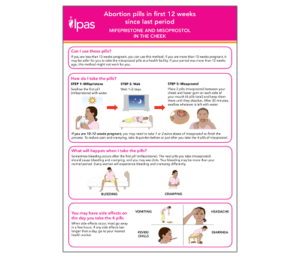
This two-page material provides simple instructions for safely using abortion with pills and is intended as a resource for health providers to share with their patients. Available in English, French, Portuguese, and Spanish.
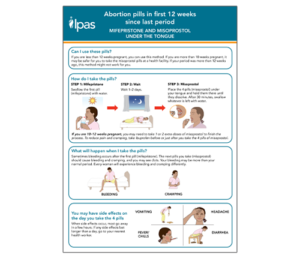
This two-page material provides simple instructions for safely using abortion with pills and is intended as a resource for health providers to share with their patients. Available in English, French, Portuguese, and Spanish.
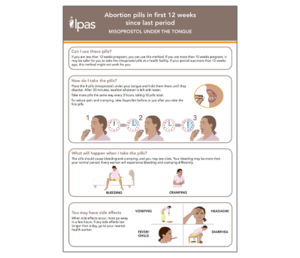
This two-page material provides simple instructions for safely using abortion with pills and is intended as a resource for health providers to share with their patients. Available in English, French, Portuguese, and Spanish.
AMoCO Study resources
The Abortion-related Morbidity and Mortality in Fragile and Conflict-affected Settings (AMoCo) study is a multi-year research project to assess the magnitude and severity of abortion-related complications in hospitals located in fragile or conflict-affected areas of the Democratic Republic of the Congo (DRC), the Central African Republic (CAR) and Nigeria.

